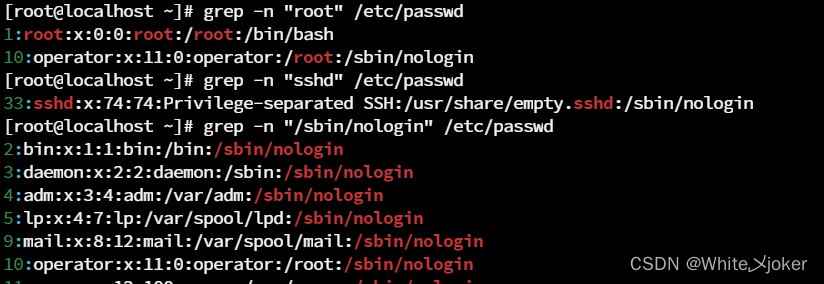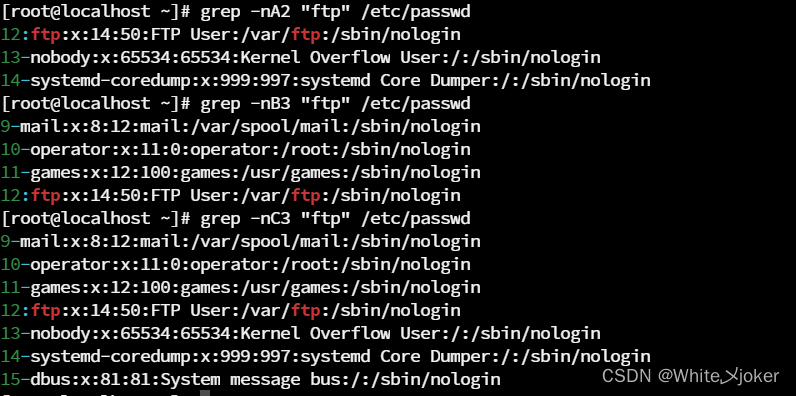Table of contents
Operation object file: /etc/passwd
Linux text search tool--grep
effect
grep is a powerful file search and filtering tool in Linux. It can retrieve file contents according to regular expressions and display the matching results on the screen (matching content will be marked red)
Format
grep -parameter condition filename
parameter
| parameter | effect |
| -i | Ignore case |
| -c | Count the number of matching rows |
| -v | Negate , do not display matching lines |
| -w | match words |
| -E | Equivalent to egrep, which enables extended regular expressions |
| -n | Show line number |
| -rl | Print files in the specified directory |
| -A number | Match line and n lines below |
| -B numbers | Match lines and n lines above |
| -C numbers | Match lines and n lines above and below |
| -q | Silent mode, no content is output , use $? to determine whether the execution is successful. |
| -o | Show only matching content |
Notice
How it works --- grep can search in one or more files. If the condition contains spaces, you need to use double quotes
Work result --- If the search is successful, a status code of 0 is returned , otherwise a status code of 1 is returned.
Example
Operation object file: /etc/passwd

Function ---Record account information, divided into 7 segments, separated by colons
Meaning ---Account name: Password code x: UID: GID: Comment: Home directory: Login Shell
Notice:
/sbin/nologin in the last paragraph indicates that login is not allowed
grep filter command example
[root@localhost ~]# grep -n "root" /etc/passwd
[root@localhost ~]# grep -n "sshd" /etc/passwd
[root@localhost ~]# grep -n "/sbin/nologin" /etc/passwd

[root@localhost ~]# grep -c "/bin/bash" /etc/passwd
[root@localhost ~]# grep "/bin/bash" /etc/passwd | wc -l
[root@localhost ~]# grep -nv "/sbin/nologin" /etc/passwd
[root@localhost ~]# grep -ni "d" /etc/passwd
[root@localhost ~]# grep -nA2 "ftp" /etc/passwd
[root@localhost ~]# grep -nB3 "ftp" /etc/passwd
[root@localhost ~]# grep -nC3 "ftp" /etc/passwd